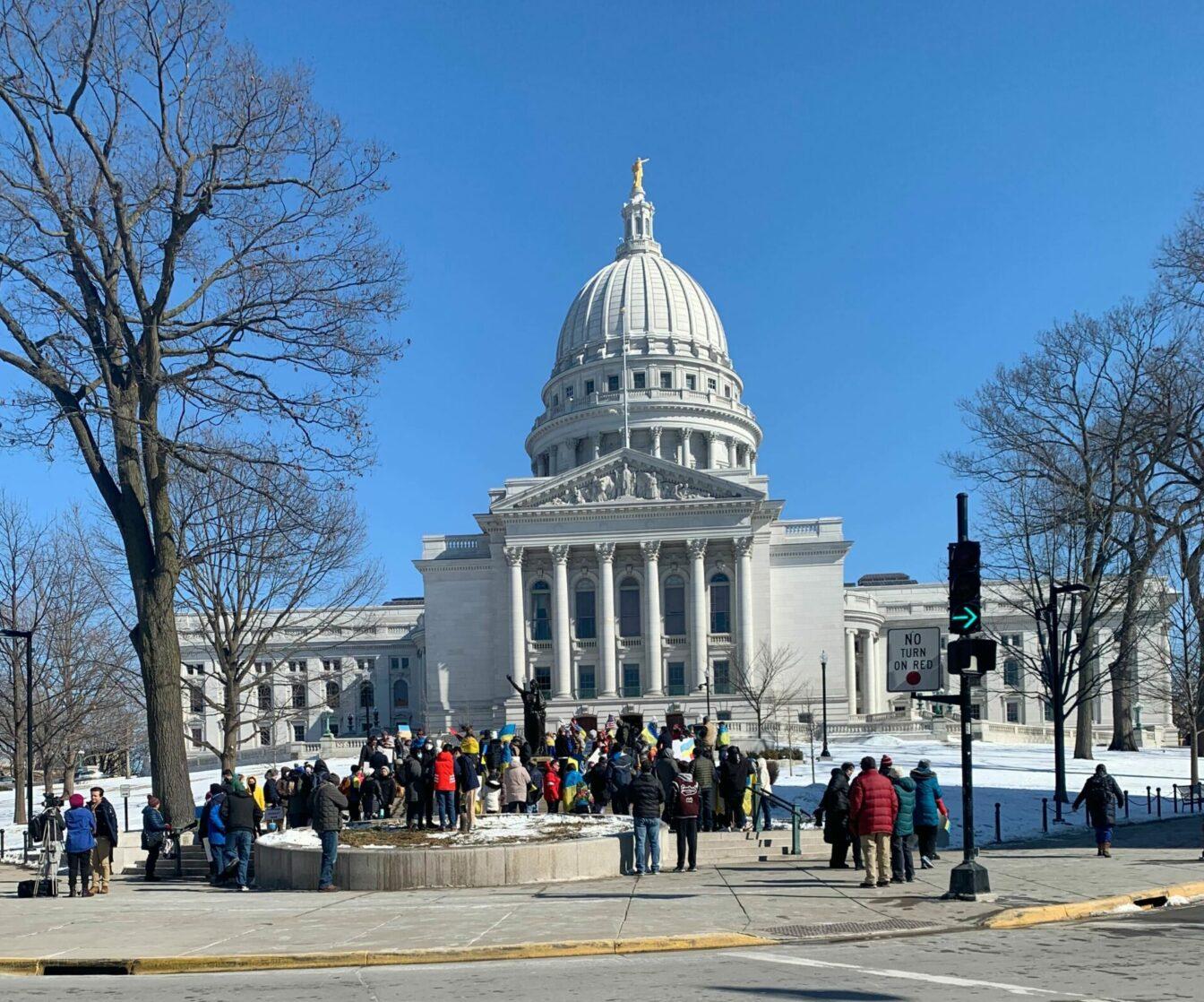Though the United States is not planning on going to war in Ukraine, Russia’s invasion will still affect Americans, several University of Wisconsin political experts said.
While the Russian invasion of Ukraine is still a cause for concern for numerous reasons, the U.S. sending troops to the area is not one of them. UW international relations professor Jon Pevehouse said there is “zero” possibility that the U.S. will send the military to Ukraine at this time because doing so would be a direct confrontation that could lead to a third world war.
The U.S. government’s current strategy in response to Russia’s invasion of Ukraine is economic sanctions and arms sales, which may raise gas prices in the United States if the government chooses to cut off all supplies from Russia, Pevehouse said.
UW professor and expert on Russian politics Yoshiko Herrera said American troops will not enter Ukraine outside of NATO, and it is unlikely NATO will send troops to intervene directly — though they might consider helping Ukraine by stationing troops and supplies in neighboring countries.
Despite this stance, sociology professor and director of the Center on Russia and Eastern Europe Ted Gerber said there is a concern about the implications of this invasion on the climate of democracy in Eastern Europe and the western world.
Western nations should focus on uniting under common values of democracy and freedom after this unprovoked attack that is a clear violation of democratic values — it would be misguided to just go about our lives and ignore the crisis in Ukraine, Gerber said.
Pevehouse said that younger generations — like current college students — may not understand what it means to have a major conflict in Europe, but to older generations, it brings back old memories of events like the Cold War.
“Several generations thought we’d moved past this,” Pevehouse said. “That you wouldn’t have democracies being invaded. That you wouldn’t have concerns over nuclear war.”
Though there are concerns of nuclear war, Pevehouse said this is unlikely because NATO is taking to steps to not send troops and engage in direct war.
Even if the United States does go to war, there will not be a draft, Gerber said. There is nothing to suggest a massive need for manpower in the current war, Gerber said. Additionally, the U.S has fought wars involving large troop commitments — like those in Afghanistan and Iraq — without needing a draft, Gerber said.
“No American, political or military, has proposed renewing the draft,” Gerber said in an email. “I can see no reason whatsoever to anticipate anyone doing so, as the US military does not face any kind of manpower shortage and there’s just no political support for a draft here.”
Herrera said the U.S. military has been volunteer since the 1970s — after the Vietnam war. In the event additional forces were needed, though Herrera said this is very unlikely, the U.S. would most likely call the National Gaurd rather than engage in a civilian draft.
A panel of UW experts will discuss and answer questions about the Ukraine crisis at the Pyle center 7 p.m. Wednesday. The event will also be live-streamed.
“This is actually a pretty important international crisis,” Herrera said. “And it’s gonna be something that affects most Americans.”


